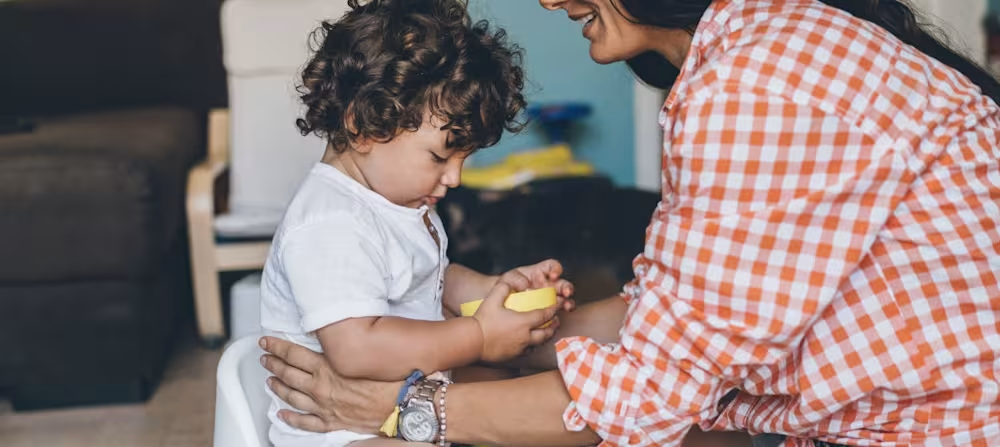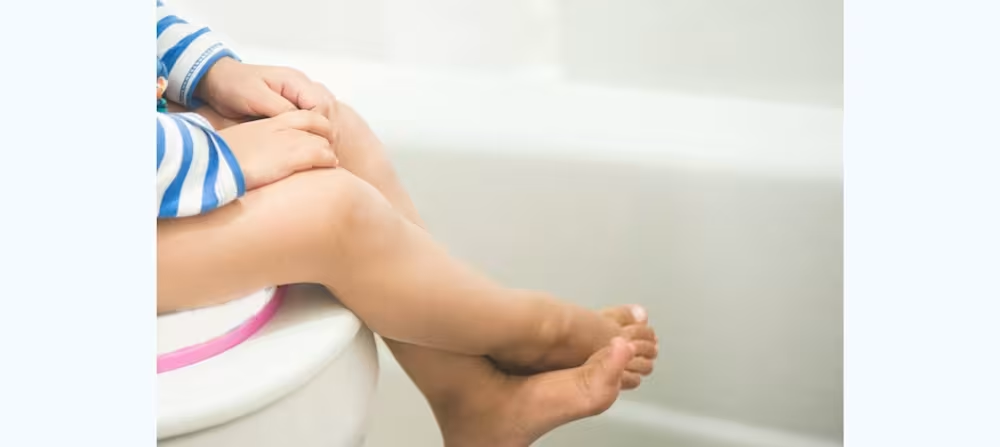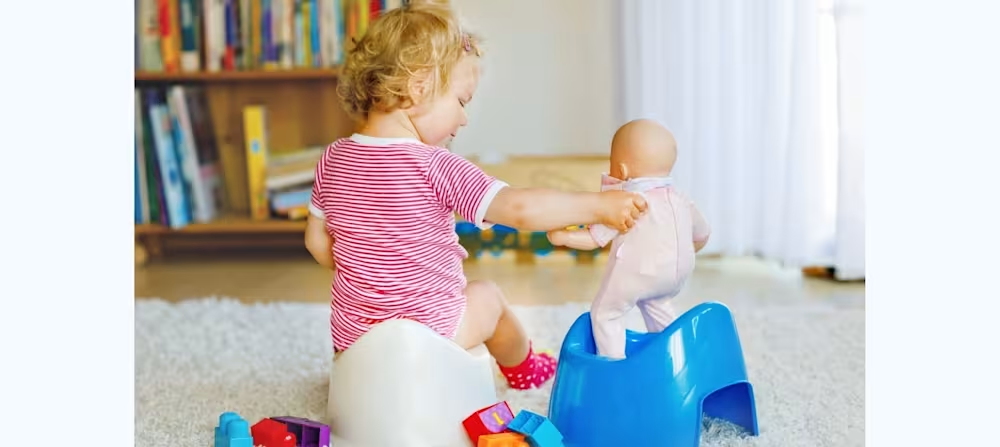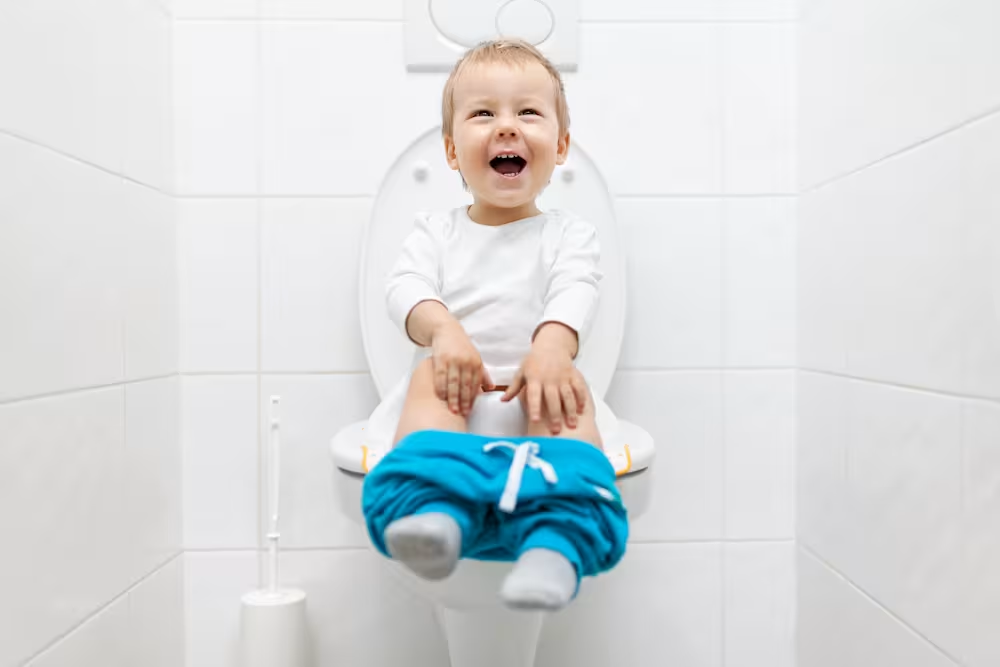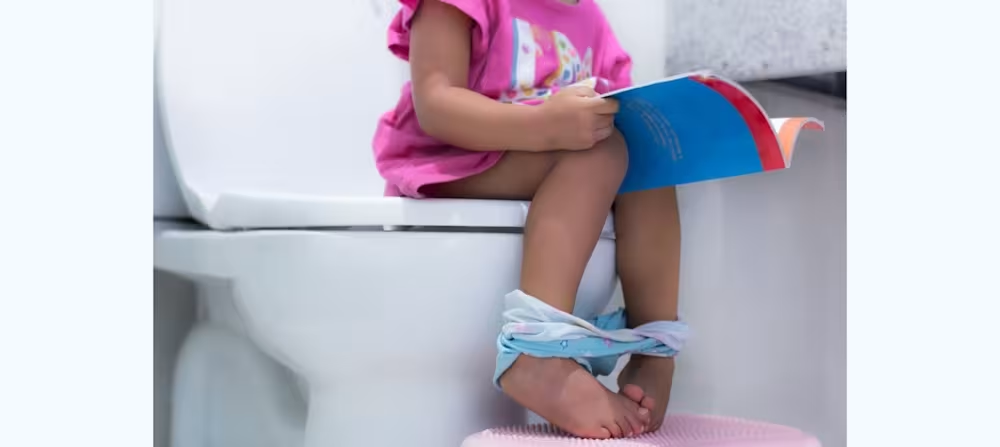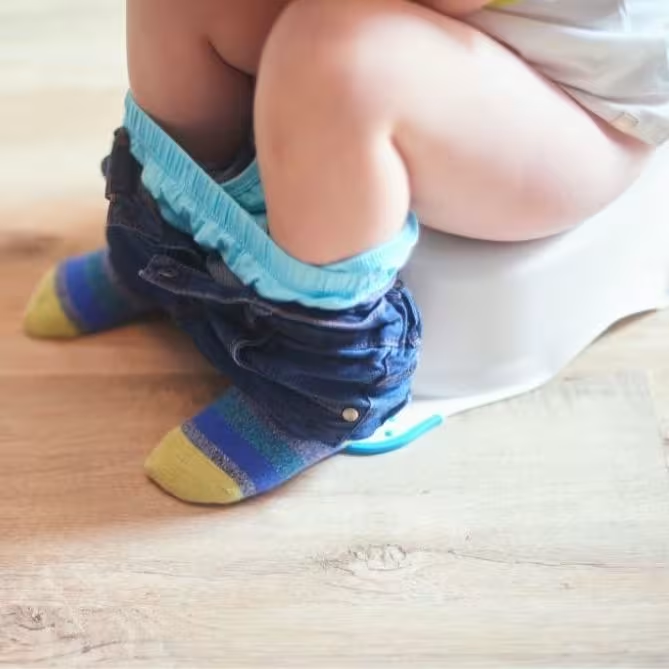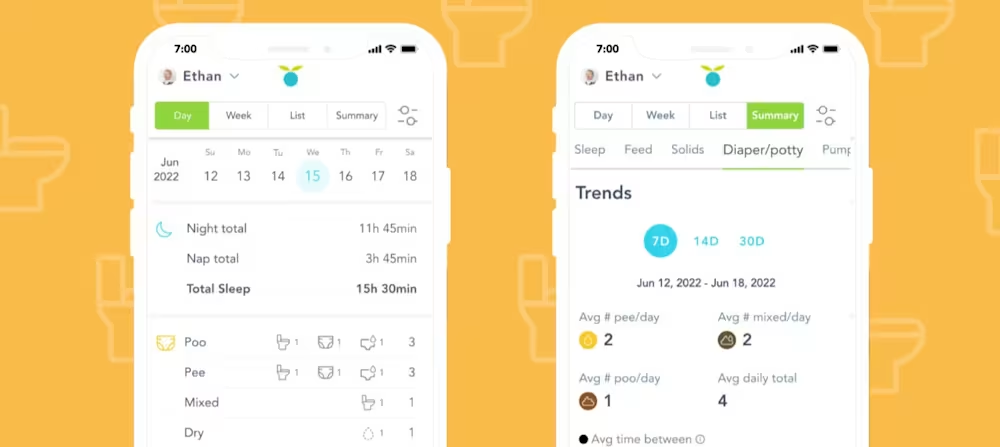How to potty train your child in 3 days
Updated Dec 29, 2025

Over the first few years of your child’s life, you’ve likely heard other parents mention the “3 day potty training method.” Some likely claim it works while others may scoff at the notion of such a quick training method. Though many studies show that it takes at least 14 days to create a new habit, a number of other experts rave about the 3 day potty training method and how successful it has proven to be for families all over the world.
Time is often the priority for parents and caregivers who choose the 3 day method when scoping out the different routes to having a successfully potty-trained toddler. This method is stellar for busy families who work full-time and need results right away. Are 3 days enough to teach children to ditch diapers and pee and poop solely on the potty? Are the steps listed below powerful enough to help you guide your child through this milestone in a weekend? We’ll get deeper into these questions below!
If you’re browsing this post, your child is likely showing signs of readiness surrounding potty training or you’ve already begun and need some extra guidance. Either way, we’re here to share everything we know about your child in 3 days.
Pros and cons of the 3 day potty training method
The 3 day potty training method is one of the most popular ways to in the United States. The strategy behind it offers an intense few days of quickly learning each step of the process which can result in great progress and success for some children.
Most children begin showing readiness signs between 2 - 2.5 years old. Every child and family dynamic are different which means this method may be perfect for some and overwhelming for others. Let’s go over some of the pros and cons of what makes this method so popular.
Pros
The short timeline of this training process is appealing to ALL
Hands down, the most attractive aspect of potty training in three days is the short period of time that everyone will have to upheave their lives and focus on learning this new skill. Results are usually promised within 3 days which is an unbeatable sales pitch if you know anything about how stressful potty training can be for some!
A plan and a purpose
This method lays out each step extremely clearly. There is an exact start date and end date which is music to a busy family’s ears. Each step quickly builds on the next which makes the process easy to understand and follow.
Great bonding time
For 3 whole days, you’ll have nothing else to do but focus on your child. This method ensures lots of precious bonding time between you and your toddler. During this weekend period, you can plan activities that will not only be fun for you both to enjoy but will also help you keep a close eye on your kiddo to be able to squeeze in as much learning as possible.
Cons
High expectations = higher stress
Our children easily feel our energy and feed off of our stress. The intensity of trying to reach this big goal in a matter of days can add some anxious feelings to the air among the adults and children involved. This can lead to your toddler feeling overwhelmed and resisting moving forward in the process. The 3 day method can sometimes interchangeably be used with the term “potty training boot camp” for a reason!
Unrealistic for some personality types
Some children require longer periods during times of change. Oftentimes children who have a hard time adjusting to change or need more time to absorb new life transitions will do better with a longer-term potty training method such as the .
Misleading claims surrounding the 3 day promise
Parents might unknowingly embark on a long weekend of potty training with unrealistic expectations that their child will be fully potty trained by the end of it. As mentioned above, new habits and foundational skills often take several weeks to develop and solidify. Even though diapers are removed and the concept of potty training is taught in a 3 day period, there will be additional maintenance and upkeep required to keep your child’s new skills advancing. In addition, keep in mind that initial potty training is typically only for the daytime; will come later.
5 tips and tricks to potty train your child in 3 days
Tip 1: Prepare your toddler
Preparing your toddler emotionally, mentally, and physically for this big transition is one of THE most important aspects of the entire process (no matter what method you choose!). Children thrive when they know and understand what is coming next. When we can give our children knowledge about the process and equip them ahead of time with what to expect, they’ll likely be more willing and able to go through the potty training journey in just a few days.
Here are several helpful ways to prepare your child:
Have them role-play potty training scenarios with their stuffed animals/toys.
Read potty-themed books
Create a paper chain 3 - 5 days before beginning the process and tear off one link each day leading up to the official start date
Let them pick out new underwear and potty supplies at the store
Tip 2: Prepare yourself
We often hear talk about preparing your child for potty training and tips to get them ready, but what about YOU? It’s just as important to mentally, emotionally, and physically prepare yourself and your home for potty training.
Here are several ways you can prepare yourself for this milestone:
Meal prep ahead of time.
Prepare fun indoor activities that you can do with your child.
Communicate with those in your support system and utilize them for caring for siblings if necessary.
Put towels and leak-proof protectors over soft surfaces to protect your home.
Have a basket of your favorite cleaning supplies such as disinfectant and stain remover at the ready.
Clear your schedule so you don’t have anything else to worry about besides teaching your child how to use the potty.
Remember, you’re the guide of this process. If you’re not ready for this, your child will feed off of your stress and hesitation. On the other hand, if you are prepared and confident, your toddler will be too.
Tip 3: Keep it positive
Potty training doesn’t have to be stressful and scary. It’s our job to make it as fun and positive as possible. Use rewards, find silly ways to hop, skip, or jump to the restroom, create a “secret” handshake to incorporate into the reward system, and keep it lighthearted! Try to put all of your focus and attention on the successes instead of the accidents. Praise any efforts leading to progress, and avoid scolding or shaming when mistakes are made. This will help the training process to go smoothly, quickly, and successfully.
Tip 4: Utilize bottomless time
Be ready to transition through each step pretty quickly. To really accelerate the learning process, start with some bare-bottom time on the first day. This means, instead of removing diapers and going straight into underwear, let your child be naked, or at least naked from the waist down, for the first full day. Not having anything on helps your child make the connection that the mess is no longer easily contained without diapers. It also helps you notice more quickly as soon as an accident starts, so you can potentially catch some pee or poop in the potty and turn the accident into a success. Leaving a short period of bottomless time before moving to underwear helps your child break the habit of releasing whenever, wherever. By day two, you can start getting some practice with clothing and outings.
Tip 5: Don’t be held hostage
Remember, your child is going to need to go back into the real world after day 3. They’re going to need to know how to listen to their body and use the potty when they need to pee or poop both in and out of the house. Incorporating some low-key outings on days 2 and 3 will give your child some practice and exposure to more stimulating environments. Just be sure to pack some extra changes of clothes and keep your expectations realistic. Accidents are bound to happen, but they are all part of the learning process.
Takeaway
At the end of the day, you are the expert on your child and you know what their learning style is and what method will be best for them. As parents, we constantly receive unsolicited advice and instruction from others which can make things even more overwhelming. Take a deep breath, do your own research, and take this milestone one day at a time.
All the hard work will be worth it when you see the gears turning and how proud your child is as they start having success. The 3 day potty training method provides a great excuse to take some time away from the hustle and bustle of daily life and reconnect with your child. No matter what method you choose, keep finding the positives in the process, and it will make it all that much more rewarding.
Share article:
Note: The content on this site is for informational purposes only and should not replace medical advice from your doctor, pediatrician, or medical professional. If you have questions or concerns, you should contact a medical professional.
Share article:
